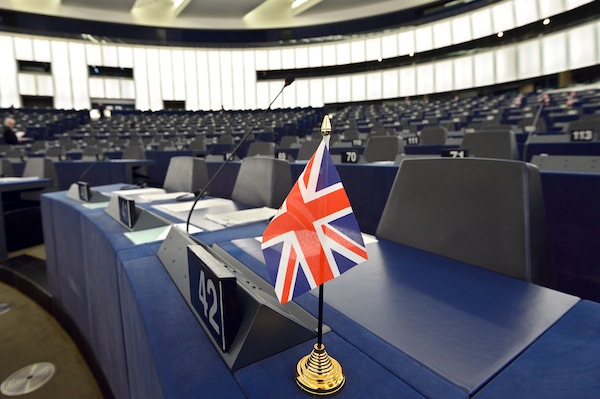Honesty and consistency; two qualities everyone agrees to value but that are easily jettisoned as soon as maintaining them proves too inconvenient. It turns out they’re not so valuable as all that.
So it is with all things Euro-referendum-related. If we are to believe the rival tribunes competing for your affections later this year, negotiating the terms of a British exit from the European Union will either be a doddle or a disaster, with little room for hope in between those twin imposters. Well, perhaps.
Sometimes, however, it helps to imagine an alternative but comparable scenario in which, as it happens, you may be less invested. Doing so might make some things clear.
Conveniently, we have just such an alternative but comparable example close to hand. As everyone, I think, now recognises the arguments over Britain’s relationship with the EU are strikingly similar to many of the arguments made in recent years about the relationship between Scotland and the UK.
Which means that when it comes to the matter of imagining how Brexit negotiations might go, there is some value in imagining how you think negotiations about the break-up of Britain might have gone.
We were assured, by the SNP and the wider Yes movement, that these would not have been so difficult as scaremongering Unionists sometimes suggested. It would, after all, be in everyone’s interests to cut a deal with which everyone could live. Unravelling the UK might be difficult but it would hardly be impossible. It had, after all, been done before when the 26 counties of southern Ireland departed. Besides, with good will and an optimistic outlook all circles could be squared.
Why, the more optimistic kind of Scotch nationalist averred, they need us just as much as we need them. [Insert wibbling about balances of payments here, please.] Why would they wish to create economic uncertainty and myriad other difficulties by imposing an unjust settlement? Enlightened self-interest is the future, my friends. Don’t be threatened or blackmailed into voting No!
Ah, yes, but you see there’s also this: people do not always behave in an entirely rational fashion. Sometimes even good things come at a price. And even an acceptable price remains a price. There is no free lunch.
Besides, you misunderstand the psychology of the situation. What may seem obvious and sensible to you may not strike me as being obvious and sensible. Your liberation – good luck with that, by the way – is also, unavoidably, a repudiation of me. Now you ask me to help you? What’s in it for me?
Oh, sure, there’d be some advantage for me. Cutting a deal will be necessary. I can see that. But it’s all a much smaller issue for me than it is for you. I can cope with not getting my way on a few issues. Can you? I doubt it.
And there’s something else too. I don’t owe you anything. Not even goodwill. You are the one that has chosen to leave. That’s your prerogative but I cannot see why I should go out of my way to make matters easier for you or to lessen the consequences of your own freely-made decision.
I have voters too. They are annoyed as well. They don’t see why we should sign-up to your list of demands. Quite the contrary, in fact. They’re prepared to endorse a deal that actually costs them something if, that is, it is a deal that costs you more. Independence is an expensive business and so is divorce.
So, in this hypothetical scenario, you should ask yourself this: who has the upper-hand in these negotiations? Is it the team wanting to leave or the remaining members of the club? Members who, collectively, are both more numerous and wealthier than the team wanting to leave?
Or, to put it another way, do you think Scotland or the rump-UK would have had the advantage in post-independence negotiations? And, comparably, who do you think would have the advantage in post-Brexit negotiations? The answer to those questions seems obvious to me though I concede your mileage may vary.
That answer is that much more needs to go right for the people who are leaving than needs to go right for the people who are not. This is so even if you think Scotland – or Britain – would benefit from getting out.
What I don’t understand is holding the idea that Scotland would be worse off in post-indy negotiations but Britain would have the upper-hand in post-Brexit discussions. Some people on the Out side appear to believe this, however. Which in turn leaves me wondering if they’re interested in making their arguments with any honesty or consistency.
At the same time, it is plainly true that Britain would no more be doomed outwith the EU than Scotland would be outwith the UK. It might be disadvantaged but there’s every difference between being disadvantaged and being doomed.
Nevertheless, it would not be done easily. I commend Robert Colvile’s dispatch from a Brexit Wargame to you. It demonstrates the extent to which Britain might be forced to reach agreements on the very matters which provoked Brexit in the first place.
Now you may think this a price worth paying. Nothing wrong with thinking so. But it is dishonest to suppose you can get everything you want without having to give up some of the other things you also want. Dishonest, too, to suppose that the negotiating advantage would lie with the Brexiteers.
Is that scaremongering? Perhaps it is. But facts and stubborn truths can be frightening things too. Can it be done? Of course it can but that is not the same as supposing it can be done well. Or easily. Or without some disagreeable disadvantage.







Comments